A Journey Through Ukraine
Text and photos by Alberto Buzzola
Abridged by Syharn Shen (沈思含)
A Journey Through Ukraine
Text and photos by Alberto Buzzola
Abridged by Syharn Shen (沈思含)
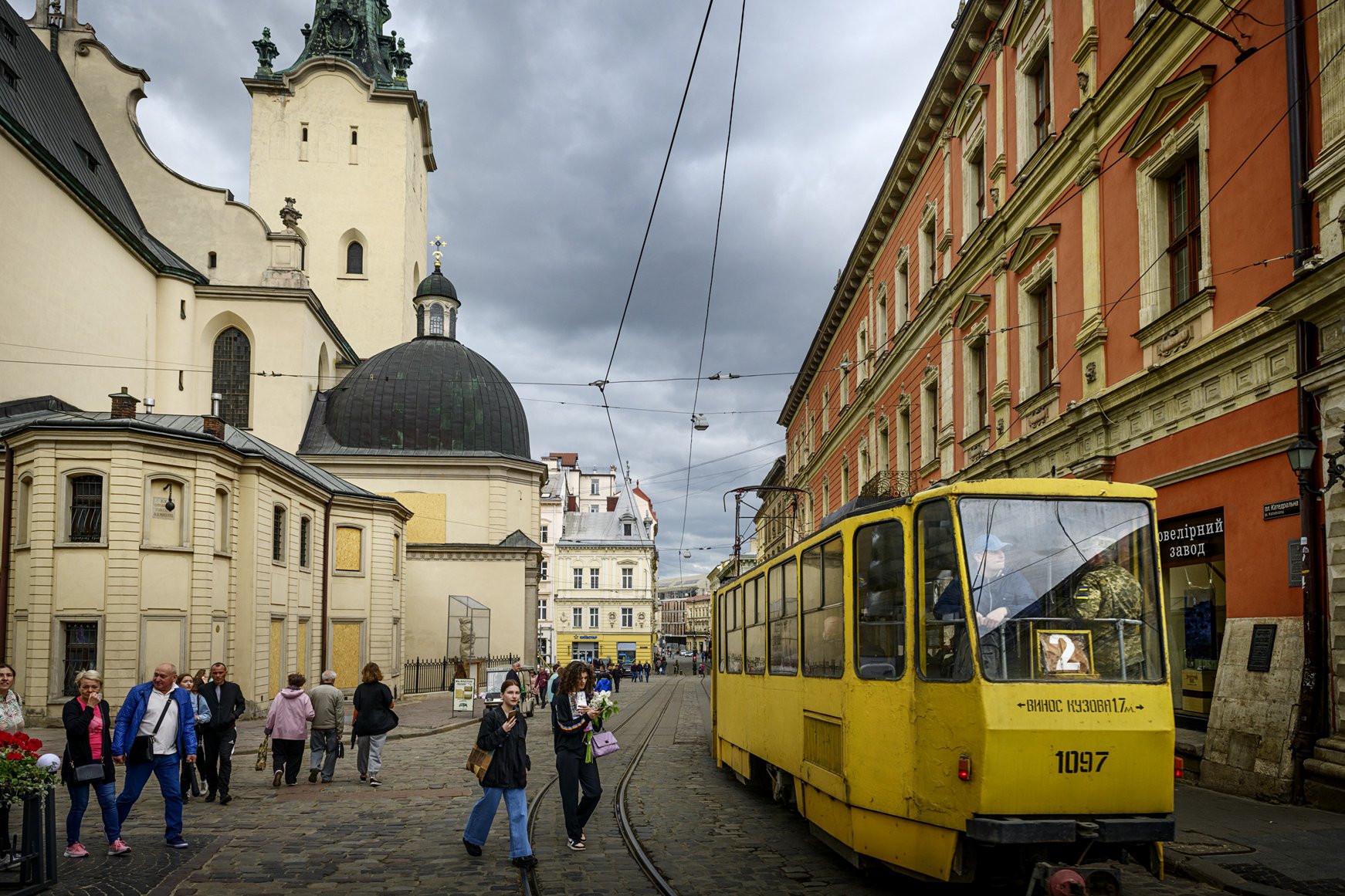
Old trams in Lviv, reminiscent of those of the old Soviet days, snake their way over cobbled streets, their unmistakable sound and unexpected punctuality a perfect analogy of a city that emanates the antique, but vibrates with modernity.
Lviv is the first sizeable Ukrainian city you reach after crossing the eastern border of Poland. At first glance it is impossible to tell you have arrived in a country at war. Then, it starts to dawn on you that things are not as innocent as they seem. The numerous old statutes and works of public art, for instance, are wrapped in thick canvas and encircled by sand bags more suitable for protection than restoration. Senses alerted, you start talking to people, studying their eyes, and soon discover behind their smiles and polite manners something not quite right. That "something" reveals itself later, when you go to bed, only to be suddenly awakened by the so-called "air alarm" urging everyone to run to safety in the nearest shelter. Like the locals, you soon become accustomed to the sound of this siren and try to cancel-out thoughts of enemy missiles landing just a few feet away.
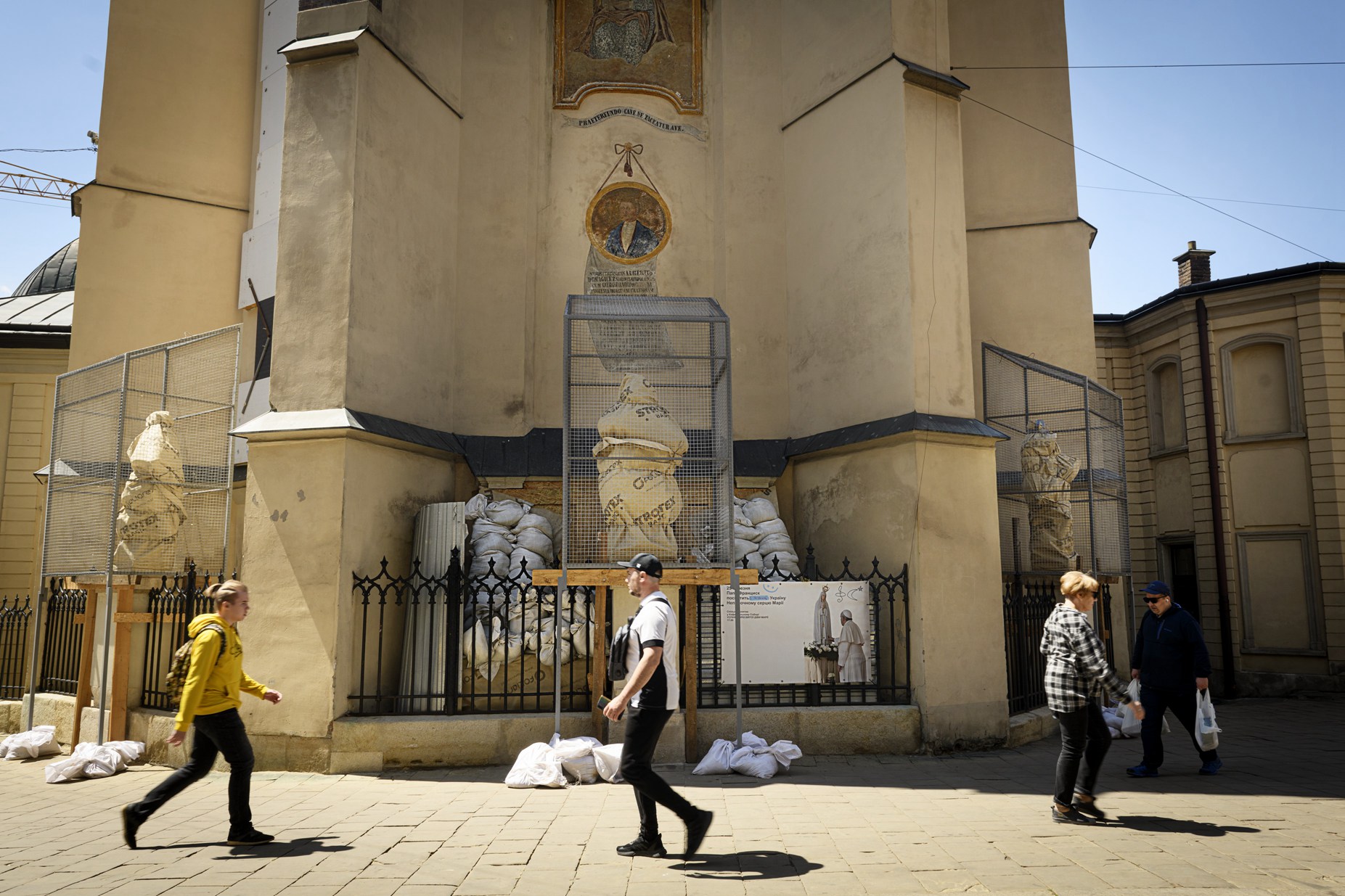
People pass by an 18th century wrapped statue on the side of a church in central Lviv. Most valuable historical monuments have been wrapped with protective material in case the city is shelled by the Russian army.
Lviv's outskirts have been hit a few times by missiles, but the city's historical centre has been spared, thus far. Lviv is a monument to survival, having come through the two great wars, and many other conflicts before that, unscathed. The citizens of Lviv seem to know how to enjoy life in spite of the current situation. Cafés teem with diners, restaurants and bars are busy throughout the day, and residents go for walks in parks or indulge in window shopping. Street musicians perform to large crowds of well-dressed spectators.
I travel further eastwards, towards Ivano-Frankivsk. As far as the eye can see stretch endless fields of grains and other crops. Here again, war seems far away, and of small concern to the farmers busy at their work. The country was the breadbasket of the Soviet Union, and could become one for Europe, too. But right now, tons of wheat are locked in warehouses, unable to be exported due to the Russian blockade of the Black Sea.
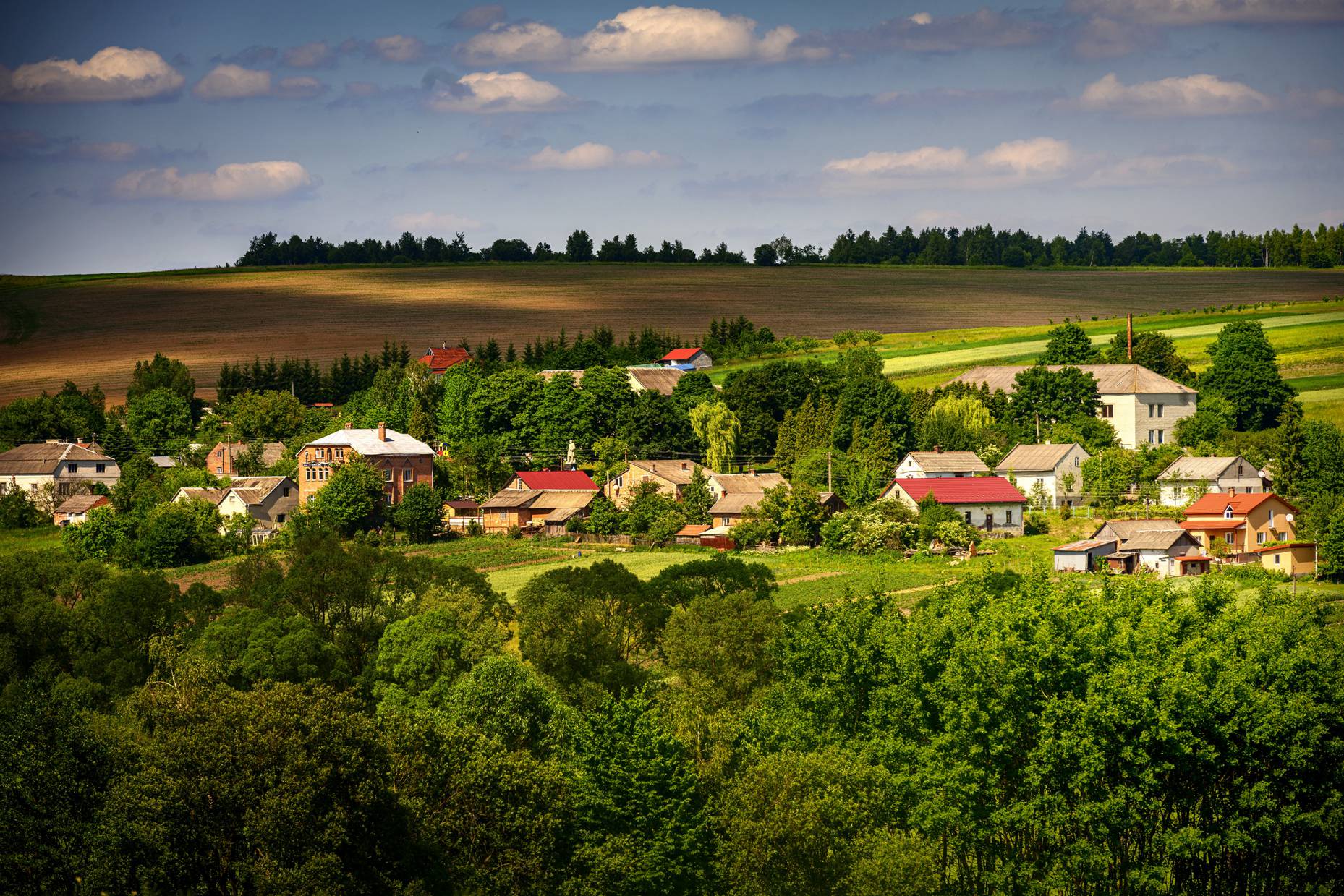
In Ivano-Frankivsk, the differing shades of green and gold, swaying gently under a blue sky, breathe life into the dry statistic that 75% of the Ukrainian economy is linked to agriculture.
Since Russian President Vladimir Putin's "Special Military Operation" has shifted its focus to the eastern and southern fronts, life in the Ukrainian capital Kyiv has returned almost to normal. The coffee shops and restaurants are as busy as ever. Despite a nationwide unemployment rate of over 10% and stagnant wages, most people continue to commute to work, as usual. Others, mainly the young, had to join the military, with many of those giving their lives in the process. Of the numerous women and children compelled to escape to the safety of neighbouring countries when the war broke out, many have now returned. The government is back in the capital, and most foreign embassies are once again open for business.
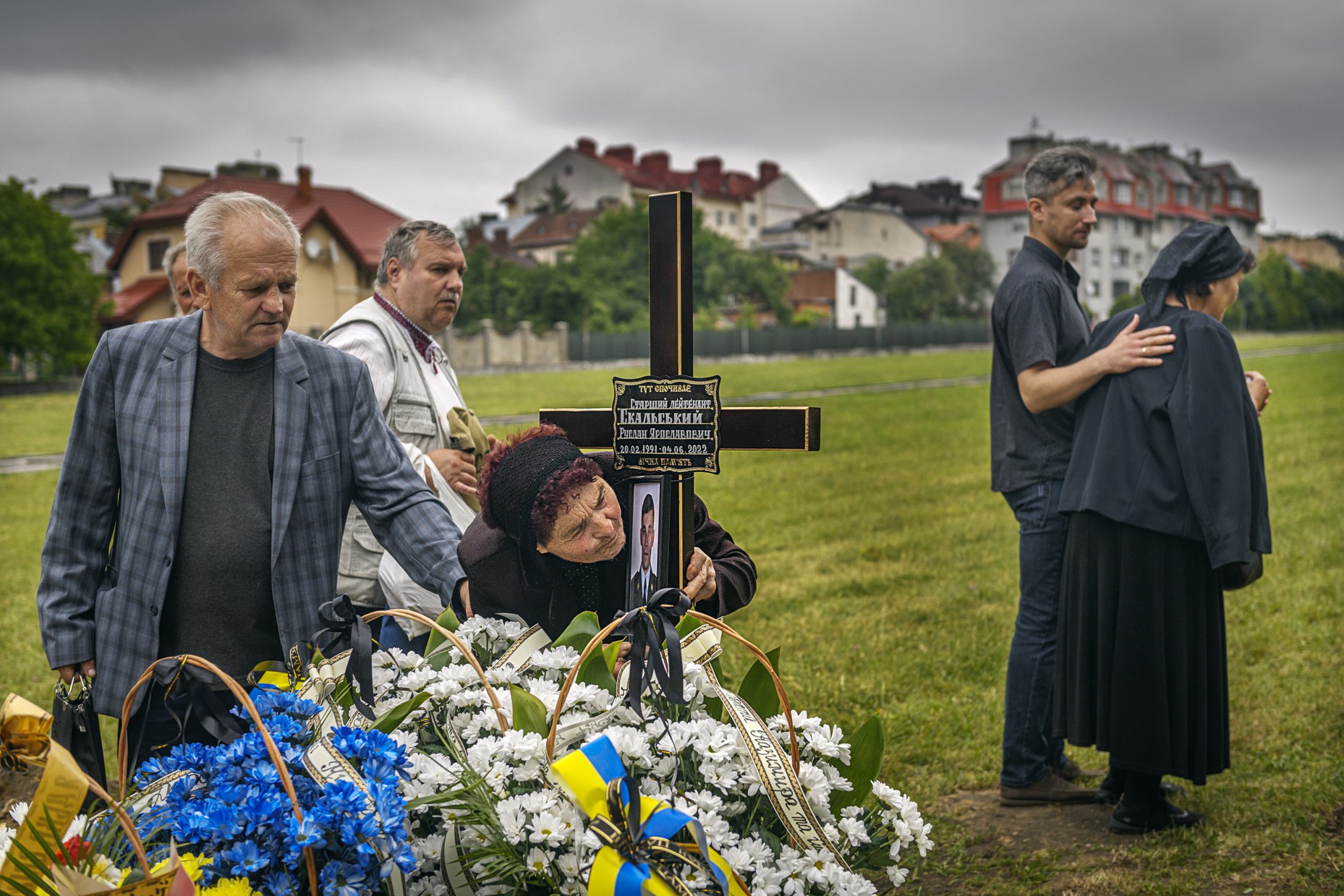
Funerals of young men are an unfortunate daily occurrence across the country.
Further down south, Odessa, once the most important city of the Russian Empire, is now the only Ukrainian city with access to the Black Sea. Many of the city's historical areas are now closed to visitors. A small part of the waterfront area is still open, but the beaches are off limits. Odessa is very close to the southern front, and at times, walking in the centre of town, explosions can be heard from the outer suburbs. Air alarms are frequent, and the pace of life is slow and cautious. Here, war is closer and more visceral.
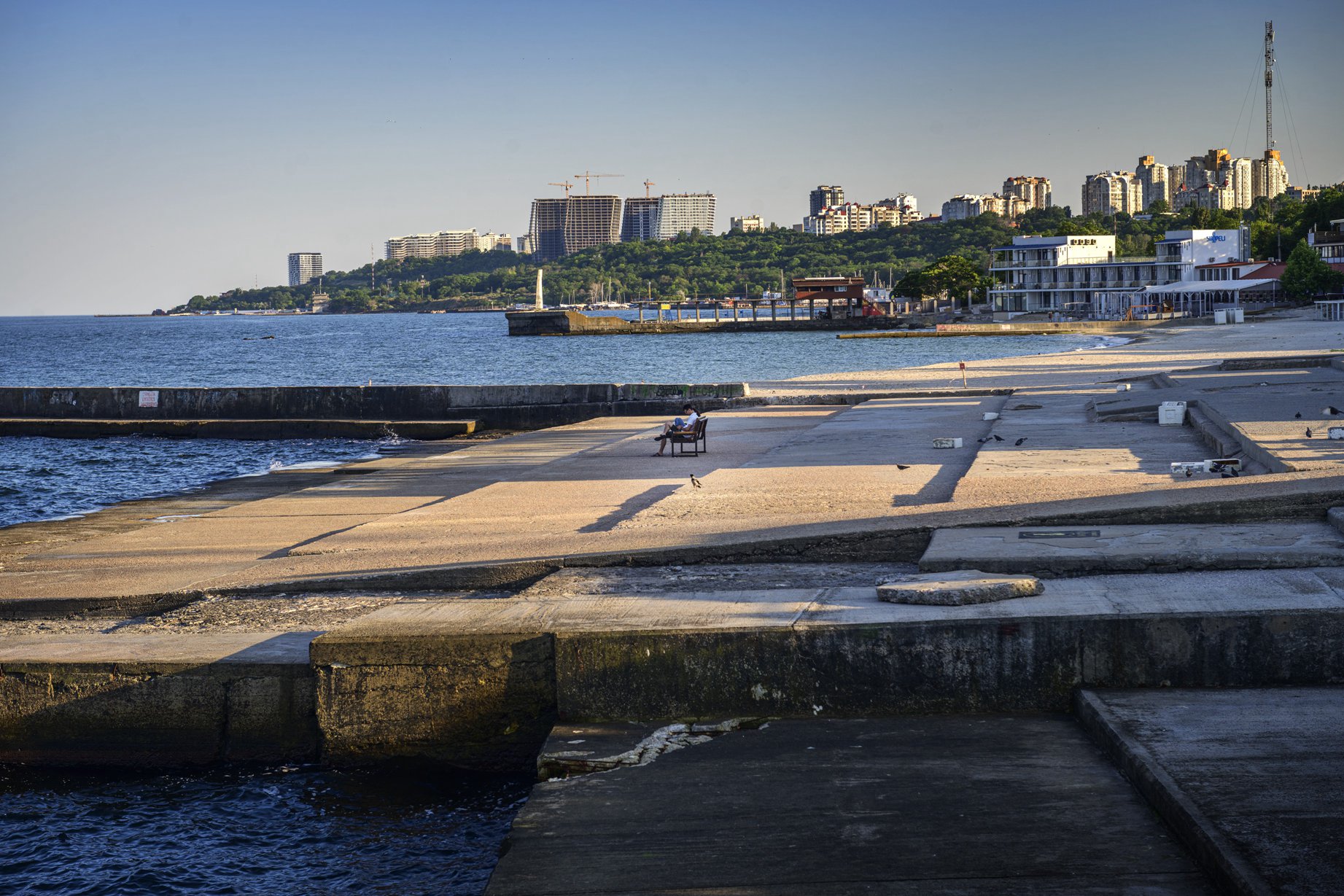
In defiance of restrictions, some people venture close to the sea by the Odessa coastline. Once a thriving area crowded with tourists and small yachts, it is nowadays almost empty of human presence.
For the sake of journalistic neutrality, I refrain from postulating on political issues pertaining the current situation, but I cannot hide my great sympathy for this country and its people. Besides the futile loss of life and destruction of property, I see a country and people deeply divided, not just geographically, but ideologically and culturally as well. A high price will be paid for all this madness, down the line, and the greatest at risk are the younger generation, who will grow up with much hatred and resentment embedded in their hearts and psyches.
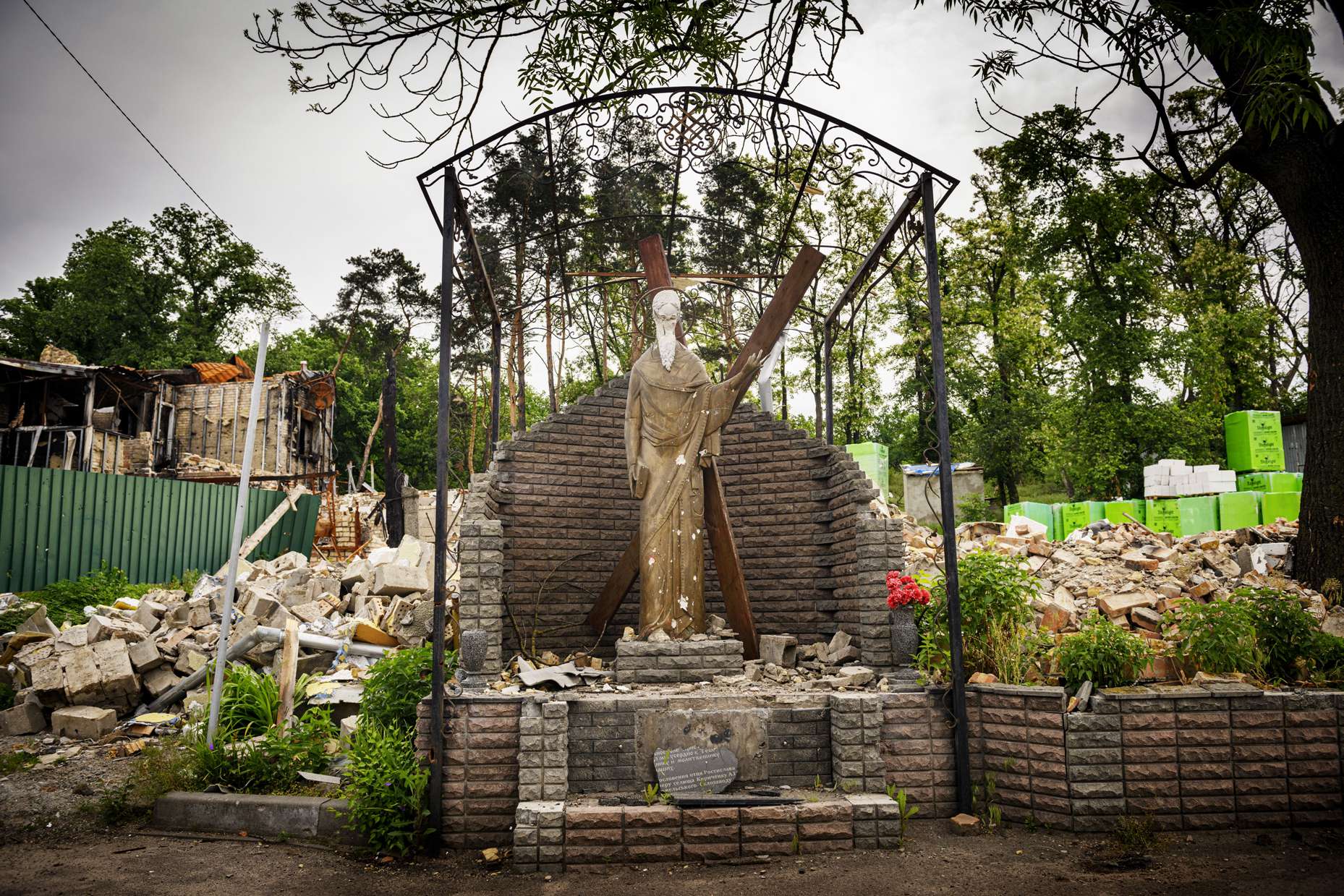
In the outskirts of Bucha, an old church has been completely destroyed during the occupation of Russian soldiers for about a month.
Over the span of fifty years, the world has been forced into two brutal, global wars. Humanity should have learnt from past mistakes and by now found a way to resolve disagreements. Peace is the basis for a better and more prosperous life for all. Yet, peace seems, more than ever, just a period that separates wars, and the reprieve is never long lasting. Unable or unwilling to find a way to live in harmony, we tend to focus more on our differences than our similarities; insatiable in the quest for personal wealth and power, rather than in sharing, our immaturity stands out, and thus crippled, we fail to see how wars are as evil as they are unnecessary.
Contact Us | Plan a Visit | Donate
8 Lide Road, Beitou 11259, Taipei, Taiwan
886-2-2898-9999
005741@daaitv.com
©Tzu Chi Culture and Communication Foundation
All rights reserved.
